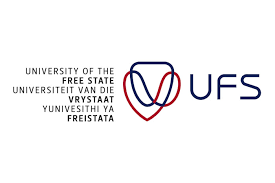University of the Free State: Fresh from the farm – UFS Experimental Farm delivers research with social impact
Adding to the value chain, extending the teaching and learning process, and supporting the development of the surrounding communities – this is the result of seven years of hard work for the Paradys Experimental Farm of the University of the Free State (UFS). Whether it is yoghurt and cheese from the dairy factory, wool products from the wool production and wool processing hub, or an ice-cold beer from the fermentation institute, the farm will soon share the fruits of its labour with the Bloemfontein community.
Situated outside Bloemfontein on the road to Reddersburg, the farm is an agricultural training centre in the Faculty of Natural and Agricultural Sciences for UFS students who, among others, take modules in agriculture, working with cattle, sheep, crop cultivation, and milk production. Moreover, the farm also offers training opportunities to members of the community, ranging from short courses in animal health and animal breeding to workshops in wool classing, sheep handling, and sheep management.
“We want to take students through the entire production chain. It is a valuable part of our teaching and can make our work on the farm more profitable. The aim is to extend the use of a specific product. Instead of only selling milk, we add value to the product and sell it, for instance, as cheese or yoghurt. Or in the case of grain, rather than only selling it to wholesalers to make bread, it can be fermented into beer and waste can be used as animal feed,” says Prof Frikkie Neser, Head of the Department of Animal Sciences. He is the convenor of this initiative, along with the Dean of the Faculty of Natural and Agricultural Sciences, Prof Danie Vermeulen.
Currently, eight departments in four of the faculties at the UFS are involved in the work on the experimental farm.
Dr Analie Hattingh, Manager of the dairy processing unit and Lecturer in the Department of Animal Science, is responsible for the entire production process in the dairy processing unit, from concept development up to sales. Since the installation of the unit started in May 2021, two lines of cheese have been produced – a delicious semi-hard, full-cream all-rounder, and a more exotic cheese with different flavours, containing ingredients such as cumin, chili, garlic, peppercorns, and mango. The Department of Sustainable Food Systems and Development (CENSARD) will later cultivate and harvest some of these herbs in the tunnels on the experimental farm. The department will also be involved in product development.
More recently, Dr Hattingh also started to investigate the development of a yoghurt line with different flavours – the more traditional mixed fruit and strawberry, as well as more exciting flavours such as pear caramel.
“All our products are natural,” she says.
This initiative adds to the already established centralised infrastructure hub on the experimental farm, which supports wool production and processing. Under the auspices of CENSARD, members from the community are taught, among others, entrepreneurial skills in different aspects of wool processing, such as knitting, making felt products, spinning, and weaving.
Creating products from dairy and wool is not only contributing to job creation; it also empowers communities to create a sustainable livelihood for themselves.

